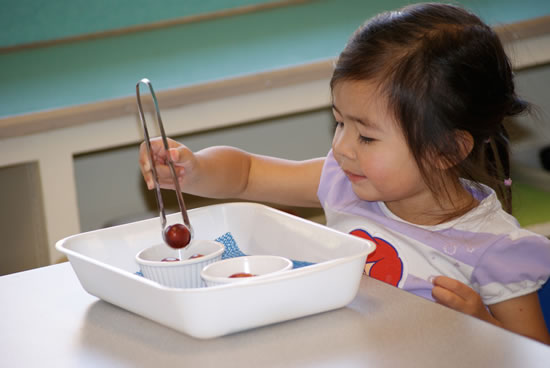
Creating Self-Reliant Cambodian Children
What is self-reliance? Self reliance is being independent. This behavior is a concept of encouraging a person to be confident, able to make decisions and do things for themselves. Taking time to nurture the growing abilities and interests of a child can be overwhelming, challenging and exhausting, but it is a very important responsibility of every parent. Young children are expected to do simple tasks every day such as putting on their shoes to knowing their numbers and letter. Sometimes, a simple thing such as choosing where to sit can be a very challenging decision for a young child. As adults/parents, offering them the opportunity to build their self-confidence and self-reliance makes these moments a bit easier for them to handle.
There are many things that we as adults/parents can do to help our children become self-reliant. Some are listed below.
Establish a daily routine with your child. Let your child do simple tasks like brushing his teeth, eating, tying his own shoe lace or putting on his clothes by himself as soon as he gets the hang of it. Teach him how to do these tasks first and later on give a chance for him to do it without you helping him.
Stand back. When a child is about to take a risk, stand back and watch what happens. Obviously, if his well-being is in danger, step in and redirect his behavior. But if he is making the decision to try his bike without training wheels, maybe it is time to see if he really can do it. Young children are daredevils and are learning every day what their bodies can and cannot do. By allowing your child to healthfully explore his abilities without hearing a constant NO, he is learning you trust him and his decisions.
Play out-of-sight games. Beginning around nine months or earlier, play peel-a-boo and chase around the furniture games. As you hide your face with your hands or you hide your body on the other side of the couch, your child has the opportunity to imagine that you exist even if he does not see you.
Separate gradually. Best odds for a child developing a healthy sense of self are for him to separate from the mother and not the mother from him. Discipline problems less likely to occur when the child separates from the mother gradually.
Take leave properly. Make sure to let your child know when you are planning to go even just into the room next door. It is important to properly say goodbye or see you or mommy/daddy is going to work and will be back later because this helps in making your child trust you, knowing that you will always tell him what is going to happen and that you do what you say.
Allow your child to spend more time in free play. Let him explore his own ideas and think for himself. Do not worry of the mess that he will create. This comes with being a child. Just create a physically safe environment for him to explore.
Encourage helping with age-appropriate house chores. When children are a little older, they can help with simple tasks at home like laying the table, watering the plants and cleaning up their toys or room, among others. They should be given r responsibilities appropriate for their age and should be held accountable if these duties are not fulfilled. This will give them a sense of importance and they will feel that their parents trust them to do the job.
Let your child make decisions. This does not mean letting your child be the decision-maker, but to encourage him to pick out his own clothes in the morning or select dinner one night a week. When your child feels he makes decisions that are respected and taken seriously, he is building his self-confidence which encourages his self-reliance.
Be a facilitator. Children will naturally become independent. It is not your job to make them independent but rather to provide them a secure environment that allows them to become independent.
Substitute voice contact and provide long distance help. If your child is in another room out of your sight and starts to fuss, instead of immediately rushing to his aid, try telling him instead that you are coming soon. Maintaining a dialogue with a child outside the shower door is also a very good way of preventing separation anxiety. If your child needs help in what he is doing, instead of doing it yourself, give him encouragement and instructions to solve his problem.
Build relationships. Be sure that your child knows how much you love him. Effective ways of showing your love are spending quality time with him, giving him hugs and kisses, and just being caring and understanding. Also encourage closeness with other adults like grandparents, family friends or the like. Make sure that you create an environment where your child is comfortable and close to everyone in the family, not just to one person alone, because that usually means that the person he is close to is spoiling him. Introduce your child to other children and let him establish friendships with them as this normally helps in nurturing their emotional growth.
Be a model. We, parents should also be confident and should model positive behavior. First day of school is often hard to parent and child. Expect to endure separation anxiety at some point. This is true for children every time they go through a transition period from one stage of their life to the next. As an adult, we need to stay confident and be their model of positive behavior. This will encourage your child to do the same. Talk to your child about his concerns, thoughts, worries and questions. By doing this, he is learning that his thoughts are respected and heard, thus allowing him to build his own self-confidence and understanding.
Trust others. Remember, the teachers are there for help. Encouraging your child to trust others builds his understanding of community and his role within it. When he sees adults sharing and communicating, he understands he should do the same, too. This will build his ability to make friends, continue making positive decisions, and build relationships he will have for the rest of his life.














